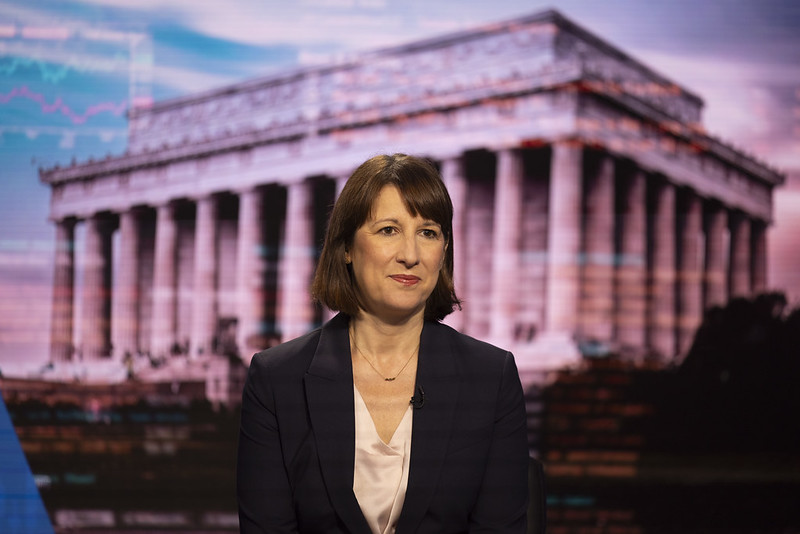
Goldman Sachs forecasts that Chancellor Rachel Reeves will raise taxes by £25bn in next week’s Budget to fund higher government spending.
Reeves has said she has to fill a £22bn black hole left by the previous Conservative administration this year, but just doing this would only be enough “to keep public services standing still”.
She is understood to be drawing up plans to find to up £40bn of levies and savings in the Budget to avoid real-term cuts to departments.
The Chancellor has also drawn up changes to the country’s debt rules that will allow the government to spend up to £50bn extra on infrastructure projects, which she expected to detail during the 30 October fiscal event.
Goldman Sachs analyst James Moberly says in a note to clients that he expects “to see the government upgrade current spending by around £30bn per year by the end of the forecast horizon given in-year overspends and the need to revise up the spending growth rate to prevent real-terms cuts to unprotected departments’ budgets”.
He adds that given the “limited headroom against the government’s target to balance the current budget means that most of this increase will need to be financed by higher revenues.
“We expect the government to announce tax increases worth roughly £25bn per year by the end of the forecast horizon.”
The US investment bank says four taxes will be in the Chancellor’s sights.
These are — capital gains and inheritance tax, removing the national insurance exemption on employer pension contributions, and extending the freeze on personal income tax thresholds.
Moberly says: “First, we expect a modest increase in the rates of capital gains tax, likely coupled with scrapping business asset disposal relief. We think that these measures could raise a combined sum in the low- to mid-single-digit billions per year.
“Second, we expect the government to scrap inheritance tax reliefs, raising around £4bn a year.
“Third, we expect the government to remove the national insurance exemption on employer pension contributions, raising around £9bn a year.
“Fourth, we think that the Chancellor is likely to opt to extend the freeze on personal income tax thresholds, raising around £4bn a year in the final year of the forecast.”
The bank adds that the Labour Party has already outlined £8.5bn of tax rises in its summer election manifesto, such as scrapping non-dom exemptions.
The Chancellor is expected to confirm in the Budget that the government will adopt a new method for assessing the UK’s debt position that does not depend on debt falling in the final year of a five-year cycle.
She is expected to ditch the existing public sector net debt measure in favour of a public sector net financial liabilities target, sometimes shortened to PSNFL.
This yardstick takes into account all the government’s financial assets and liabilities, including student loans and equity stakes in private companies, as well as funded pension schemes.
This gives the Treasury a larger base of assets against which to measure its borrowing.
Goldman says: “We continue to think that if the Chancellor does indeed adopt a PSNFL target then it would be very unlikely that all the resulting fiscal space would be used.
“We would instead expect the government to leave a much larger margin of headroom against the debt rule.
“Nonetheless, with the debt rule unlikely to bind, there is considerable uncertainty around exactly how much capital spending could increase.”



